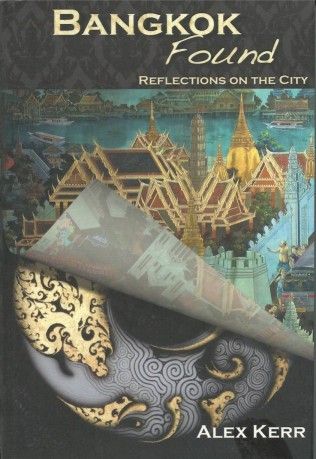A contentious headline, to be sure, but it is intended as a follow-on to the threads about gay Bangkok and Pattaya in the 1980s and beyond, one that may also be of interest to those considering retiring here in the next 10 тАУ 20 years.
Most posters in the earlier threads agreed that a lot has changed in the commercial gay nightlife establishments, including the disappearance of much of the fun of the early days. Things have never been quite the same since the governmentтАЩs social order campaign in 2001. The advent of social networking sites is also having an effect. One poster recently noted on another board that during a three-week visit to Pattaya he had spent only 3 nights in bars. His evening entertainment had been mostly arranged via the internet.
I wonder how far these changes will go? In the next few years, will we see further radical changes that might end up with most of the bars (gay and straight) and the more obviously public forms of sex and prostitution disappear?
I raise this merely as a topic for discussion. One writer whose books on Asia have fascinated me is the American Alex Kerr. A resident of Bangkok for close to two decades, he had spent most of his earlier life living in Japan. Written in Japanese, his first book about how Japan is losing its traditional culture and customs тАЬLost JapanтАЭ won that countryтАЩs highest literary award. He remains the only foreigner to have attained that distinction.
One of his latest books is тАЬBangkok FoundтАЭ. This is no tourist guide. Rather it is a book for those who live here, or regular visitors who want to learn more about Thai culture in all its many forms after they have тАШdoneтАЩ the temples and enjoyed the nightlife. Openly gay, Kerr clearly has a very wide circle of Thai friends and he bases his comments on extensive research and interviews over many years. Here are some excerpts from the section dealing with nightlife.
Kerr goes on to highlight the clash of generations тАУ the ultra conservative elders and the desire by the young for greater freedom. But an easing of sexual mores does not mean that the younger generation approves of the open displays of commercial sex in Bangkok. Almost exclusively, the vast majority of younger men prefer to meet in the relative privacy of discos, drinking clubs or behind the walls of gay saunas, for example.For whatever reason, Bangkok unquestionably has the most extensive and international gay scene in all of Asia . . . A young kiwi friend of mine, on his first visit to a gay disco in Silom Soi 2, took one look at the crowds of men, and could barely contain himself. тАЬWhen I die, I want to come here!тАЭ he said . . .
Yet despite the festival atmosphere in Silom, Thai society is hardly the open sexual paradise that many foreigners imagine . . . Young ladies of good families are educated to be sexually quite conservative. Gays usually do not come out to their parents, and many stay permanently in the closet for fear of losing their jobs.
In fact thereтАЩs a strong streak of puritanism running through Thai society. Austere Chinese morality, which frowns on sensual indulgence, plays a role, due to the large share of BangkokтАЩs population with Chinese roots. You can also see vestiges of colonial Western values from the 19th century, which Thailand took to heart in the process of modernisation . . . You wonтАЩt find in Bangkok the open flaunting of sex that you find in Japan, such as shops selling sexual paraphernalia, or newspapers sporting pages of photos of adult video stars, which blue-suited salarymen peruse in the train on their way home from work . . .
Ironically, openness to foreigners works against Bangkok in the eyes of the world. Prostitution is just as large a business in Japan as it is in Thailand, maybe even larger, but it bothers foreign visitors and journalists much less, if at all . . . This is because most of the sex is not accessible to foreigners; they just donтАЩt see it [and in any case are generally not welcome in the commercial establishments] . . .
I have what I call тАЬthe Weimar Republic theoryтАЭ of Bangkok. As dramatised in the movie тАШCabaretтАЩ, there was a brief moment of sinful freedom in Berlin during the Weimar Republic (1919 to 1933). It was the era of Kurt WeillтАЩs bittersweet music and Christopher IsherwoodтАЩs novels and stories By the mid-1930s the Nazis had stamped it out, and eventually all that remained was a legend of тАЬBerlin in the 20s.тАЭ Those who experienced it spent the rest of their lives telling others of the wild days that were now gone forever.
In time, the more outrageous forms that prostitution takes in Bangkok (sex shows, go-go bars with half-naked boys or girls) will disappear. For those things, Bangkok stands far out on the scale of what most cities in the world see as acceptable. I donтАЩt believe it will last. Slowly but surely we are seeing a clampdown, and itтАЩs a matter of time before the тАЬsinfulтАЭ Bangkok we see today fades away into legend, just as 1920s Berlin did.
I tend to agree with Kerr. How long it will take, I have no idea. Probably many more years. Commercial sex will continue to be available, certainly as long as poverty exists in the countryside and Thais from all strata of society seek it out. Eventually, though, will establishments catering largely to foreigners become just a memory?
Bangkok Found тАУ published by River Books 2010











 Reply With Quote
Reply With Quote
